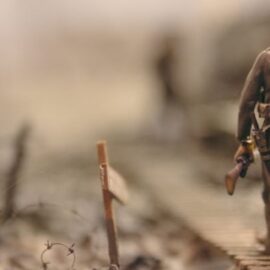
How do family dynamics influence criminal behavior? Can a criminal legacy be passed down through generations?
Pietro “Picho” La Greca Jr.’s book, Pesos, delves into the complex world of families and crime. The narrative explores the intricate relationships within a family entangled in illegal activities.
Prepare to uncover the fascinating dynamics of a family caught between honor and criminality.
The Complex Dynamics of Families and Crime
Family relationships can be fraught with complicated dynamics and power struggles. When you factor in diverse personalities, economic backgrounds, and legal boundaries, the pressure on relationships and legacies can be intense. Let’s explore the complexities of families and crimes by examining the connections between Pietro Sr., his offspring, and his father.
Strained Relations With the Father-in-Law
You can sense a deep division in the family, originating from their early days. The connections to their ancestors and predecessors are barely acknowledged, and the deliberate omission of certain names in conversation signals persistent discomfort.
Don Fernando, known for his honorable business dealings, didn’t approve of his son-in-law, Pietro Sr., who saw his marriage as a chance to climb the social and economic ladder. While Fernando occasionally engaged in clandestine shipments to enhance commercial ties, he steered clear of unlawful conduct. He even convinced his daughter to separate from Pietro Sr. and suggested they protect their grandson Picho to maintain the family’s honor.
The ethical gulf between Fernando and Pietro Sr. led to tension. Fernando’s stringent schedule contrasted sharply with Pietro Sr.’s unpredictable lifestyle, often causing a divide within the home.
Their rivalry frequently surfaced through extravagant displays of wealth, each trying to outdo the other in influence and control. As Pietro Sr.’s wealth began to eclipse Fernando’s, their business dealings intensified the competition.
The lifestyle disparities deepened the already present split within the household. The Mexican kin viewed Pietro Sr. with mistrust, while he harbored a strong aversion towards his San Diego relatives. Both men vied for the position of family patriarch, even as Fernando’s business ventures waned and Pietro Sr.’s wealth grew.
A Father-Son Power Struggle
Picho’s relationship with his father was equally complicated. Pietro Sr.’s rare appearances at home and disagreeable attitude strained their bond, leading Picho to often look to his grandfather as a father figure.
Picho’s disenchantment grew as he witnessed his father’s involvement in dubious financial schemes. Pietro Sr.’s strict supervision of domestic matters, including Picho’s academic achievements, likely contributed to their growing estrangement.
When Picho realized there might be unauthorized plans to give up the estate inherited from his forefather, he stood up to Pietro Sr. This confrontation highlighted his father’s tendency for control and led to a pivotal moment in their relationship.
As Pietro Sr. faced legal troubles, speculation grew about who would take control of the family’s holdings, escalating tensions. Picho’s decision to leave the family business was a survival strategy. He actively chose to counteract his father’s influence by covertly revoking legal permissions protecting their assets from seizure.
Unlike his father, Picho took a direct approach by hiring an attorney to protect his family’s legacy and assets. This crucial shift indicated a change in the family’s power dynamics, with Picho ready to challenge his father’s dominance.






